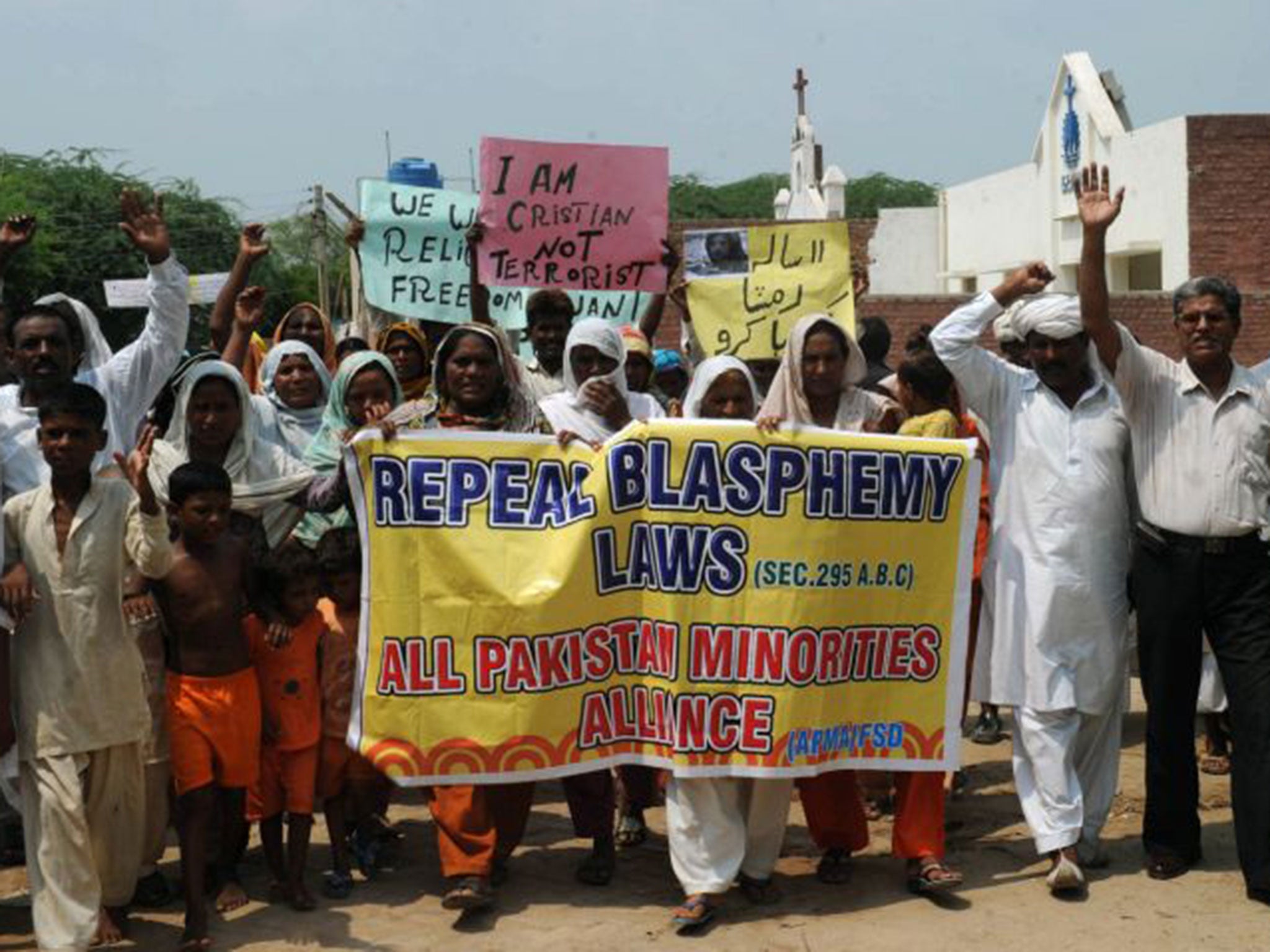Falsely accused man set free after nine years in Pakistan prison on blasphemy charges
Two-judge panel on the Supreme Court cites lack of evidence for conviction

Your support helps us to tell the story
From reproductive rights to climate change to Big Tech, The Independent is on the ground when the story is developing. Whether it's investigating the financials of Elon Musk's pro-Trump PAC or producing our latest documentary, 'The A Word', which shines a light on the American women fighting for reproductive rights, we know how important it is to parse out the facts from the messaging.
At such a critical moment in US history, we need reporters on the ground. Your donation allows us to keep sending journalists to speak to both sides of the story.
The Independent is trusted by Americans across the entire political spectrum. And unlike many other quality news outlets, we choose not to lock Americans out of our reporting and analysis with paywalls. We believe quality journalism should be available to everyone, paid for by those who can afford it.
Your support makes all the difference.A man has been exonerated after serving nine years of a life sentence for blasphemy in Pakistan.
A two-judge panel on the Supreme Court ruled that Mohammad Mansha was falsely accused, citing lack of evidence.
The 58-year-old was arrested in 2008 after the imam of a mosque in the Bahawalnagar district in Punjab province told authorities he had desecrated a copy of the Quran.
Mr Mansha was convicted of blasphemy and sentenced to life in prison in 2009.
The conviction was upheld in 2014 and the Supreme Court took up the case the same year.
Mr Mansha’s defence claimed he was arrested on a complaint from a man who suffered from hearing and speech impairments and the evidence provided had no legal value under the Evidence Act.
They also said Mr Mansha was presented before a village council where he was badly beaten and then handed over to police.
Abdul Waheed, the prosecutor in the case, said there was no “scientific evidence” against Mr Mansha and that the police investigation was “faulty”, which led to his acquittal.
Mr Waheed said Mr Mansha, a poor villager, could not hire a lawyer so the court appointed him one.
Zia Awan, head of Lawyers for Human Rights and Legal Assistance, praised the verdict in Mr Mansha’s case but said the court should have compensated him for his years behind bars on “false” charges.
Mr Awan added that it is time for Pakistan’s parliament to “carefully look into” the country’s blasphemy law.
Agencies contributed to this report
Join our commenting forum
Join thought-provoking conversations, follow other Independent readers and see their replies
Comments